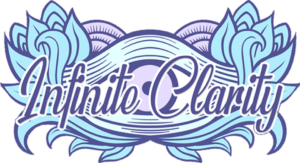HIGHER HEALTH has developed a unique curriculum to assist tertiary students who are living with disabilities, enabling them to play a leading role in growing the economy and forging social change.
As part of our contribution to National Disability Rights Awareness Month (DRAM), which runs from 3 November to 3 December 2022, we have embarked on a campaign with the Department of Higher Education and Training to draw attention to the conditions of students living with disabilities, and to highlight how we are addressing them together. The theme for this year’s DRAM is “Empowering Persons with Disabilities through resourceful, sustainable and safe environments”.
HIGHER HEALTH is a national agency of the DHET that seeks to improve the health, wellness and psychosocial wellbeing of students at Post School Education and Training (PSET) institutions. We acknowledge that serious interventions need to be implemented to remove the barriers and stigma faced by students living with disabilities. According to Statistics SA, the national disability prevalence rate is 7.5% in South Africa.
The serious challenge facing students in the PSET sector was recently highlighted by Deputy Minister of Higher Education, Science and Innovation, Buti Manamela: “Unfortunately, students with disabilities continue to be marginalised and stigmatised. Hence our priority as the Department and HIGHER HEALTH is to ensure that they have access to relevant health information and access to user-friendly services across all campuses. We cannot achieve this alone unless all the relevant stakeholders in the PSET sector join us for maximum impact.”
The Deputy Minister appeals to all stakeholders involved in the PSET sector to remove these barriers and to improve the quality of life of students with disabilities through concrete action.
HIGHER HEALTH has developed a co/extra-mural curriculum on Civic and Health Education, which has a full module on disability. We encourage all students to go through the curriculum to help them understand disability and support people living with disabilities. More than half a million students join the HIGHER HEALTH civic and health education curriculum every year.
Our participatory pedagogy, which uses a peer-to-peer principle of each-one-reach-one-teach-ten, enables educated young South Africans to become change agents and make a positive impact on their communities.
HIGHER HEALTH is deeply concerned about the multidimensional vulnerability and susceptibility of students with disabilities to HIV infection and GBVF (gender-based violence and femicide). This group is sometimes targeted by sexual predators, specifically because they either cannot report the abuse or may not be believed when such abuse is reported. Awareness and education are some of the important interventions that can be used to overcome this challenge.
HIGHER HEALTH provides capacity-building for institutional teams, student and staff leadership, wardens, house mothers and maintenance officers. This enables them to understand disability and to build systems and infrastructure within our institutions to support students living with disabilities.
Our holistic awareness and educational programmes address the needs of students with disabilities at PSET (post school education and training) institutions. The peer-to-peer educational programme, also called the “Second Curriculum”, aims to sensitise and educate the broader PSET community about people with disabilities and to equip staff of health services to respond to the specific health needs of students with disabilities.
This programme aims to create a conducive academic environment by removing the barriers and unfair discrimination against students with disabilities, enabling them to perform in accordance with their capabilities, aspirations, talents and abilities. HIGHER HEALTH’s priority is to assist these students with easy access to health information and services across all campuses, leading to informed and educated campus communities that generate knowledge among able-bodied students.
HIGHER HEALTH’s peer-led programme has experienced remarkable growth, recording close to 30 000 students supported during the first half of 2022, compared to just over 20 000 people in the same period of 2021. The programme is delivered through various learning interventions such as structured face-to-face learning sessions, extramural peer-to-peer educational activities, and access to self-administered risk screening tools.
It is also delivered through a radio programme called Future Beats, which is aired on more than 21 campus and community radio stations, with an audience of more than one million listeners. An evaluation of Future Beats showed that the programme has increased student uptake of health services, as well as facilitating dialogue on the social and cultural issues that impact on healthy lifestyle choices.
Other services offered by HIGHER HEALTH include provision of healthcare services to all students, including students with disability, such as: HIV testing, treatment, and counselling; testing and screening for TB and sexually transmitted infections; contraceptives and pregnancy counselling; and referrals and psychosocial support.
HIGHER HEALTH has launched the 24-hour toll-free helpline 0860 36 36 36 to assist students affected with various issues of anxiety and trauma and to provide general support. We encourage more youth to contact this line to seek help.
We believe that all these initiatives will go a long way to improve the conditions of students living with disabilities, but more importantly, they will remove the barriers to success as well as the discriminatory practices they face.
It is only then that students living with disabilities can become active players in building the economy. Once they have their skills and are grounded in civic values through HIGHER HEALTH’s curriculum, they will have access to decent work. This is essential for their economic security, and they can become drivers of change within their communities through meaningful social inclusion.
— Professor Ramneek Ahluwalia is the Chief Executive of HIGHER HEALTH












